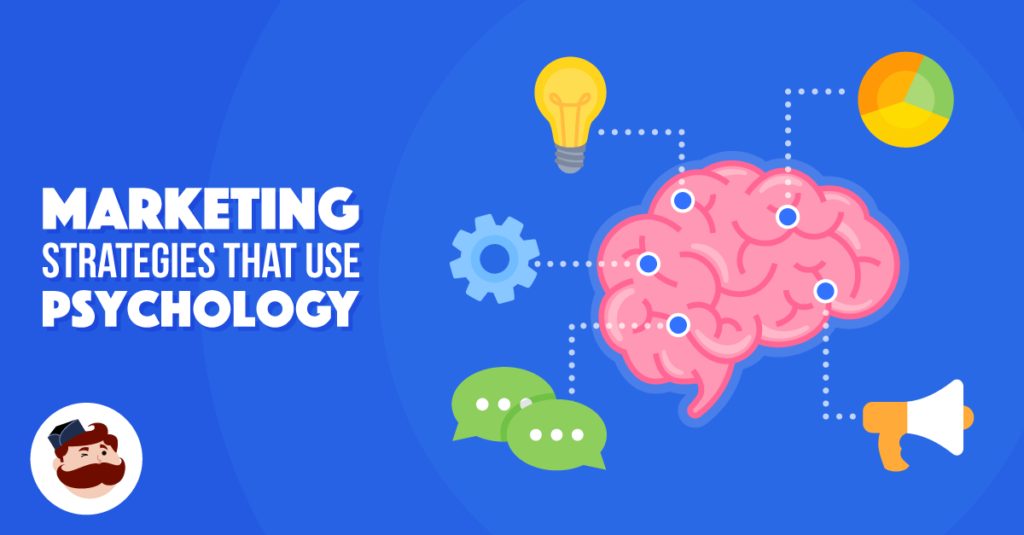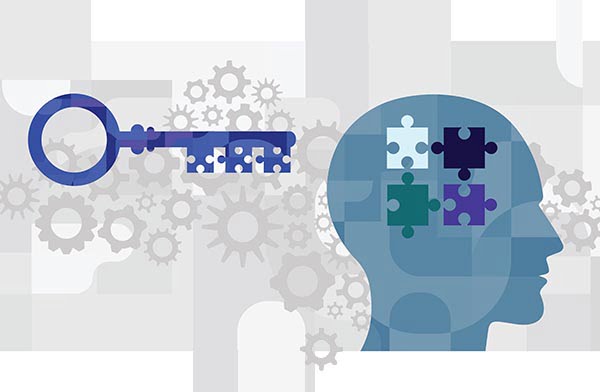When it comes to digital marketing, it is not only about the tactics and strategies you use to reach your customer. It is also about understanding the psychology of digital marketing and how it affects consumer behavior. In this blog post, we will discuss what digital marketing psychology is and how understanding the buyer’s journey can help you create more effective digital marketing campaigns. By the end of this post, you will have a better understanding of how to use psychology to reach your customer and help them take action.

What is Digital Marketing Psychology?
Digital marketing is the practice of designing and executing marketing campaigns that use digital technologies. These campaigns can be designed to reach a specific audience through online channels, such as websites, blogs, and social media. Digital marketing psychology is an important field that examines how people behave online and the factors that influence their decisions.
One of the key factors that influences how people behave online is their motivation. Customers may be motivated by a number of different factors, such as desire for pleasure or happiness, need for self-expression, or social recognition. By understanding these motivations, businesses can tailor their digital campaigns specifically to appeal to those customers and increase brand loyalty.
In addition to understanding customer motivation, businesses need to understand how customers engage with digital campaigns. This includes understanding how customers find information about a product or service, how they make purchase decisions, and how they feel after making a purchase. By understanding these interactions, businesses can design effective digital marketing campaigns that generate leads and drive sales.
Digital marketing psychology also plays a role in the overall user journey – from initial exploration of a product or service to final engagement with it. By understanding what users are looking for during each stage of the journey (and by measuring success rates), businesses can optimize their content and campaign design accordingly. This optimization will lead to increased engagement rates and higher conversion rates for your business!
At the end of the day, effective digital marketing requires input from both marketing professionals and psychologists who understand human behavior in relation to technology usage. By working together, businesses can achieve unprecedented levels of success with their online campaigns.
See also: The Future of Social Media in Digital Marketing
Using Psychology to Better Understand Your Target Audience
Targeting your audience is essential for any business, and it’s even more important when you’re marketing a product or service. By understanding your target audience, you can create a more engaging experience for them and encourage them to buy from you.
There are a number of ways to identify and define your target audience. One approach is to use surveys and focus groups to collect customer data. By asking questions about their interests, habits, and opinions, you can gain valuable insights that will help you improve your product or service.
Other digital marketing elements that play into targeting your audience are colors and fonts. When designing your website or app, be sure to take these factors into account so that they appeal to your target customers. For example, if you’re selling products related to the outdoors, use bright colors that will stand out against the greenery. And if you’re selling a clothing line aimed at young adults, make sure the fonts are easy to read on small screens and aren’t too juvenile-sounding.
Another key factor in creating an engaging experience for customers is social proof. Showing customers how many others have already purchased from you can help build trust and credibility in their mind – two important factors in customer loyalty. This means using testimonials from past customers or featuring social proof icons on your website (like verified reviews) can be helpful in convincing someone to buy from you.
In order for your product or service to be truly successful, it must also reflect the needs of your target audience. Storytelling has been shown time and again to be one of the most effective ways of engaging customers emotionally – making them feel like they’re part of what’s happening right now instead of just watching from afar. By using psychological triggers (such as triggering words or images), it’s possible reach people on an emotional level who might not consider buying from you otherwise.
Overall, understanding psychology helps businesses understand their target audiences better so they can create an enjoyable experience for everyone involved!
Understanding the Buyer’s Journey for Effective Digital Marketing
Digital marketing is one of the most effective ways to reach and engage your target audience. By understanding the buyer’s journey, you can develop strategies that will help you reach them and convert them into customers. In this section, we’ll be exploring each stage of the buyer’s journey and how digital marketing can help you achieve success in each stage.
The first step in any purchase is identifying your target customer. By understanding their needs and wants, you can develop targeted strategies that will help you reach them. For example, if your target customer is female between the ages of 25-35 who lives in a suburban area, you would start by developing a strategy for reaching this demographic through digital channels.
Once you have identified your target customer, it’s important to understand their behavior. With data-driven insights, you can gain an understanding of how they interact with your product or service and what drives their behavior. This information will allow you to create tailored experiences that appeal to your target customer base. For instance, if you know that female consumers are more likely to make purchases based on features than prices, then making sure all features are prominently featured on your website would be a great way to engage them!
Another important aspect of effective digital marketing is defining buyer personas – fictional characters that represent specific segments of the population. By creating storyboards for each persona, it becomes easier for you to understand how they think and what motivates them when making a purchase decision. This information will also help to optimize user experience across multiple channels (including website design, emails/communications templates, product descriptions, etc.), which leads us nicely onto… optimizing digital experience! By optimizing the design and layout of pages on your website, as well as integrating user feedback into development cycles from early stages onwards, it becomes easier for users to feel engaged with the brand while buying something online – increasing the chances that they’ll come back again soon after purchase too!
Conclusion
Digital marketing psychology is an important field of study for businesses looking to maximize their success. By understanding customer motivation, how customers interact with digital campaigns, and how to target their audience more effectively, they can create a powerful digital marketing strategy that will help them reach the right people and convert them into customers. Furthermore, by understanding the buyer’s journey and optimizing user experience across multiple channels, they can increase engagement rates and conversion rates for their business.

